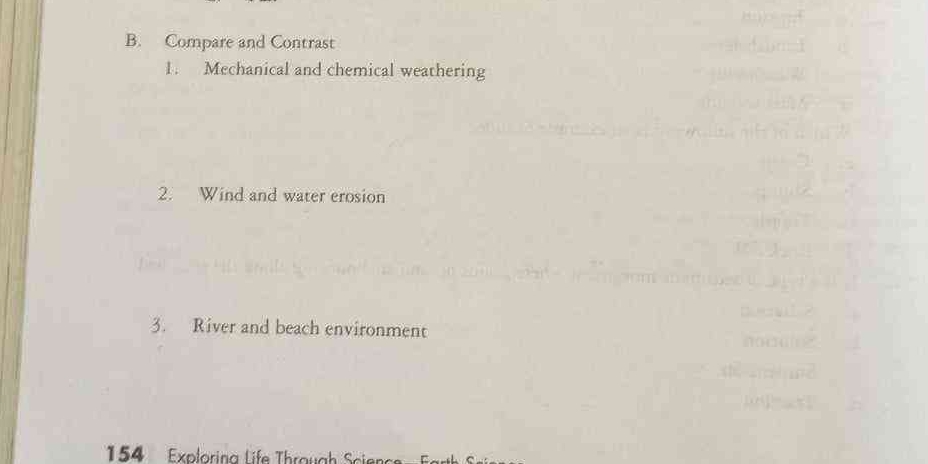Compare and contrast mechanical and chemical weathering, wind and water erosion, and river and beach environments.

Understand the Problem
The question is asking to compare and contrast three concepts related to Earth science: mechanical and chemical weathering, wind and water erosion, and river and beach environments. This involves analyzing similarities and differences among these topics.
Answer
Mechanical weathering breaks rocks physically; chemical changes composition. Wind lifts particles; water flows transport. Rivers shape channels, beaches shaped by waves/tides.
Mechanical weathering physically breaks rocks without altering their composition, using forces like freezing and thawing. Chemical weathering involves chemical reactions, altering rock composition. Wind erosion lifts and moves particles, while water erosion involves transportation by flowing water. Rivers create channels and are dynamic, while beaches are shaped by waves and tides.
Answer for screen readers
Mechanical weathering physically breaks rocks without altering their composition, using forces like freezing and thawing. Chemical weathering involves chemical reactions, altering rock composition. Wind erosion lifts and moves particles, while water erosion involves transportation by flowing water. Rivers create channels and are dynamic, while beaches are shaped by waves and tides.
More Information
Mechanical weathering is common in cooler climates where freeze-thaw cycles occur, whereas chemical weathering is prevalent in warm, humid climates. Erosion by water tends to shape more permanent formations compared to wind.
Tips
A common mistake is confusing weathering and erosion. Weathering only involves the breakdown of materials, while erosion includes their movement.
Sources
- Weathering - National Geographic Education - education.nationalgeographic.org
- Weathering and Erosion Information and Effects | National Geographic - nationalgeographic.com
- Weathering and Erosion | CK-12 Foundation - flexbooks.ck12.org
AI-generated content may contain errors. Please verify critical information